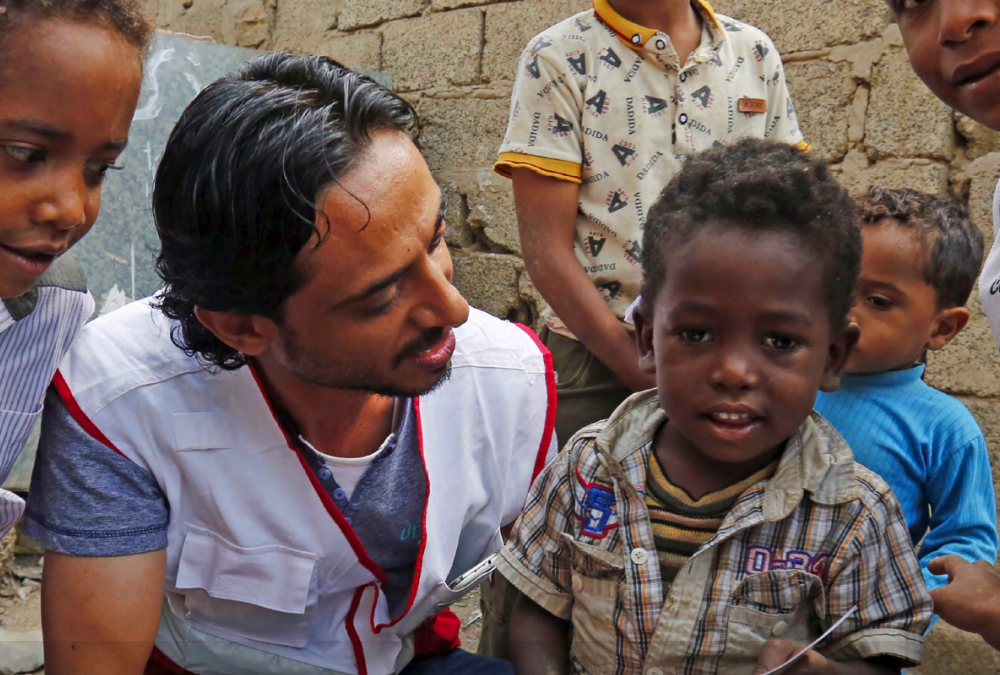

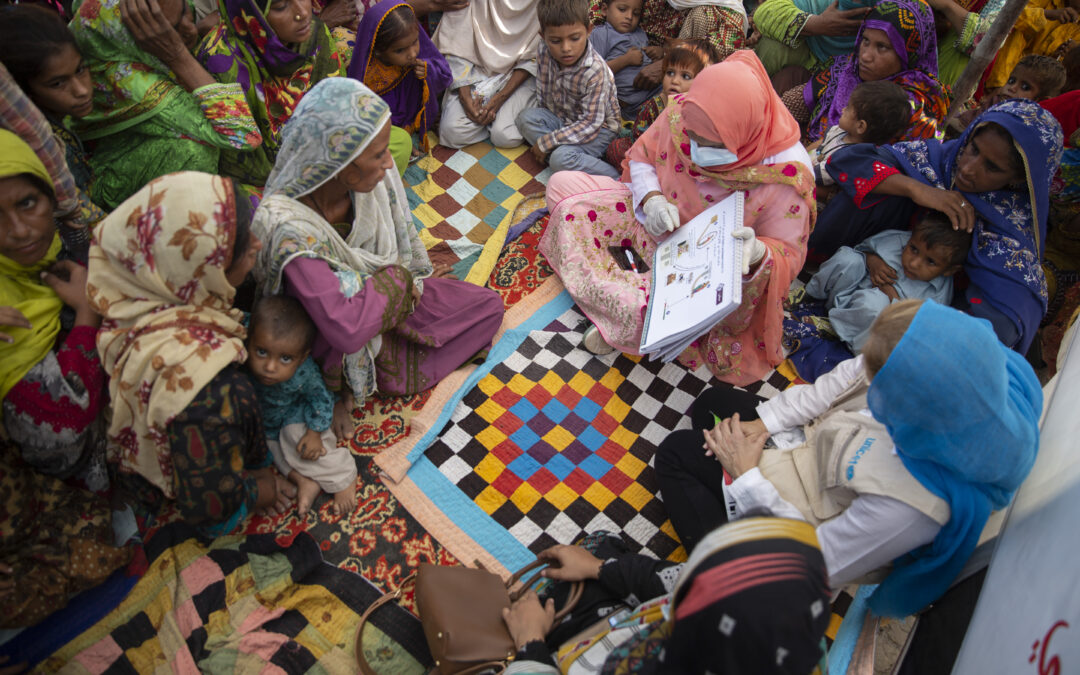
WEBINAR REPLAY: From Crisis to Coordination: What have we learned from the Evaluation of the Collective Service?”
On February 27, the webinar dedicated to the joint evaluation of the Collective Service took place and was hosted by UNICEF. The one-hour information session presented the results of how the collaboration of the three partners — IFRC, UNICEF, and WHO — has impacted public health coordination, discussed its challenges and achievements, and provided strategic recommendations for the future of the service.
Access the webinar replay – English version
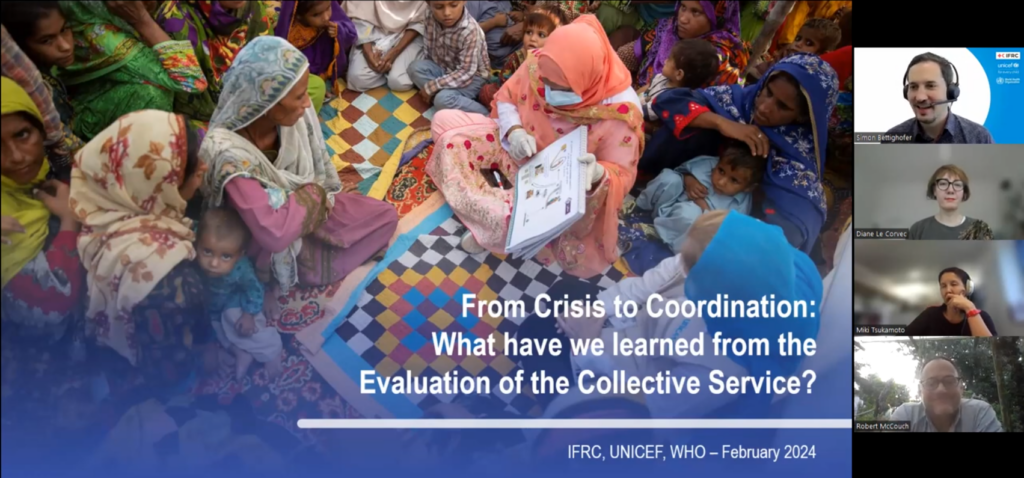
Consult the Evaluation Brief
The strategic options suggested to determine the future level of ambition of the Service in terms of scale and reach are still to be discussed, and management’s response will be communicated within the coming weeks.

UK-Med survey on integrating health humanitarian projects in academia
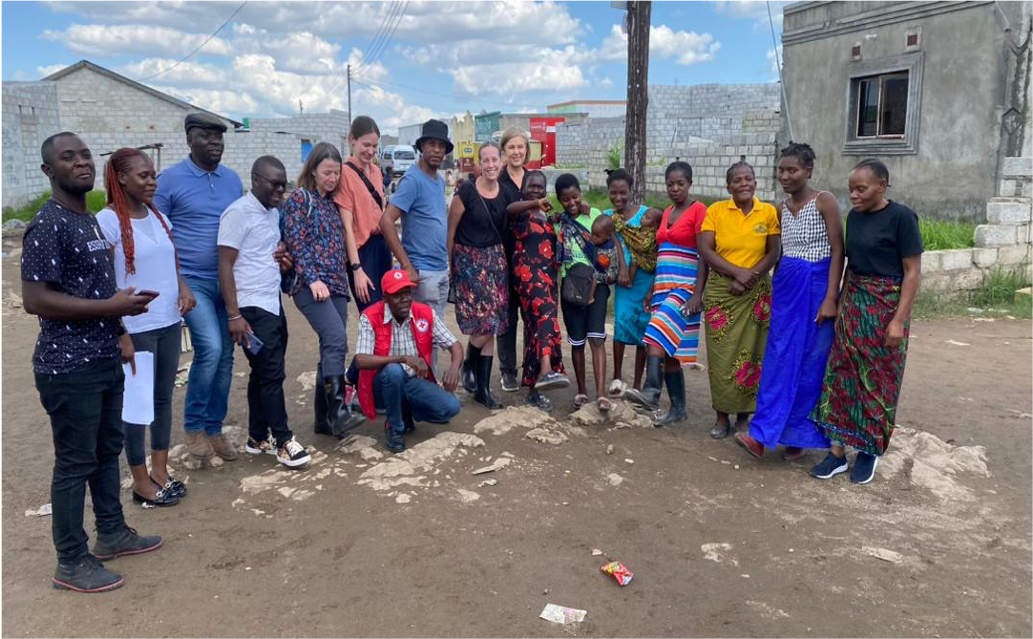
Zambia: Latest RCCE activities update in response to the ongoing Cholera outbreak
Zambia has been experiencing a cholera outbreak since October 2023 with all ten provinces reporting cases. Lusaka remains the main epicentre accounting for over 95% of all reported cases in the country. As of February 14, a total of 18,804 cases have been reported of which 11,973 are in Lusaka province and its districts (including all its sub-districts), which 658 deaths and a case fatality rate of 3.5%.
Children and men continue to account for many of the cases and deaths both in the community and at the facility. Investigations are ongoing to unpack the reasons why children and men are at high risk.
In support of the Dynamic Listening and Research Subgroup under the Risk Communication and Community Engagement (RCCE) Pillar, co-led by the Ministry of Health (MOH) and Zambia National Public Health Institute (ZNPHI), UNICEF is working with the Zambia Red Cross Society (ZRCS) and University of Zambia (UNZA), supported by UKHSA and US CDC to undertake a series of rapid qualitative assessments (RQA) to better understand transmission dynamics and community perceptions towards causes of cholera, prevention measures and treatment.
The early key findings and recommendations were shared during the presentation of the ESAR Technical Working Group as well as multiple response coordination platforms in each country. Other RCCE activities have been implemented, such as the reactivation of Dynamic Listening, training and mentoring/supervision of the University of Zambia (UNZA) School of Public Health Students, Community Feedback System with training on data coding across the country, and the development of action tracking for RQAs and Community Feedback data.
Consult the TWG presentation to access further details on the RQAs’ key findings and recommendations.
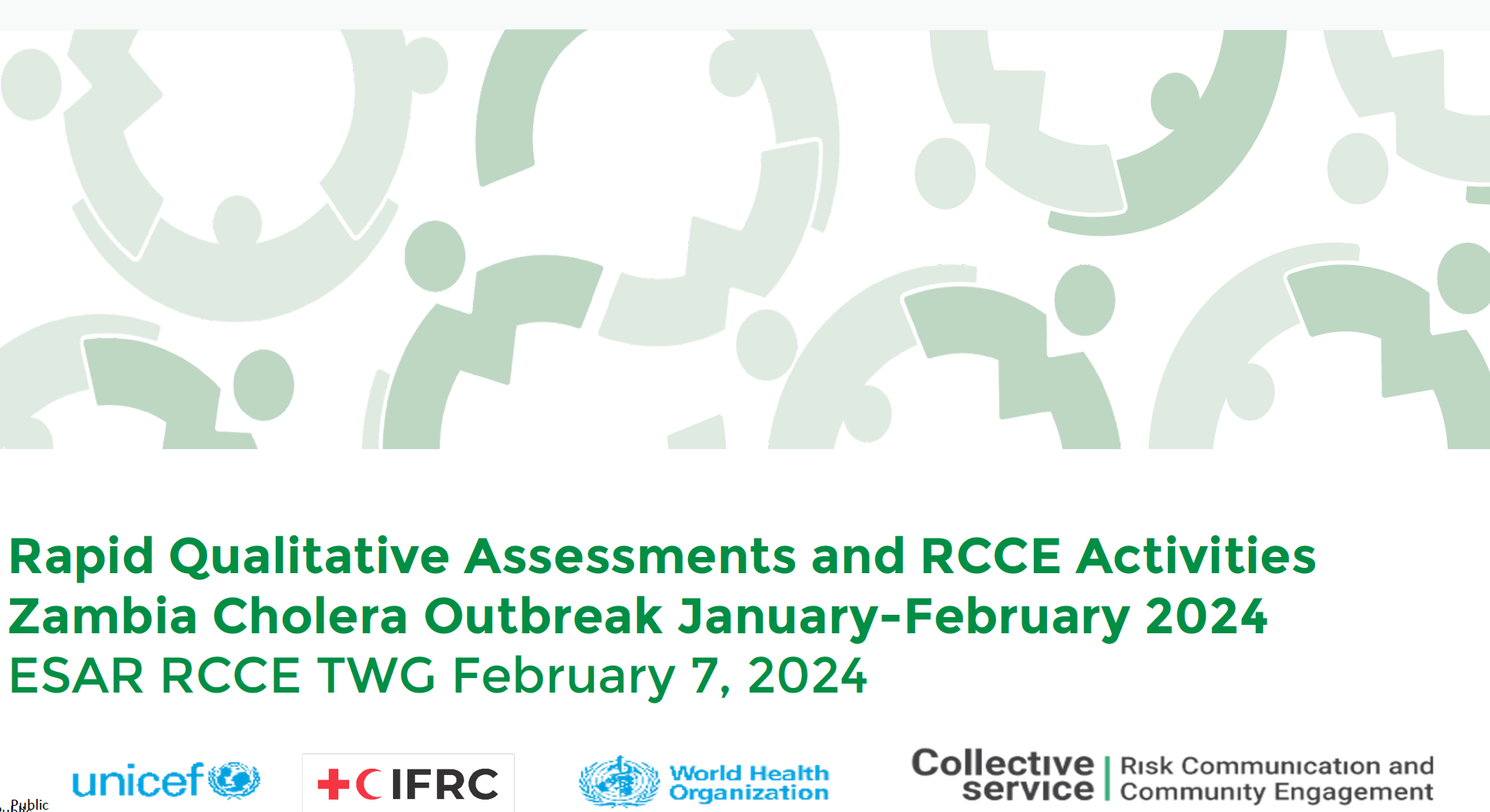
Contact: Rachel James, Collective Service Regional Interagency Coordinator (UNICEF)
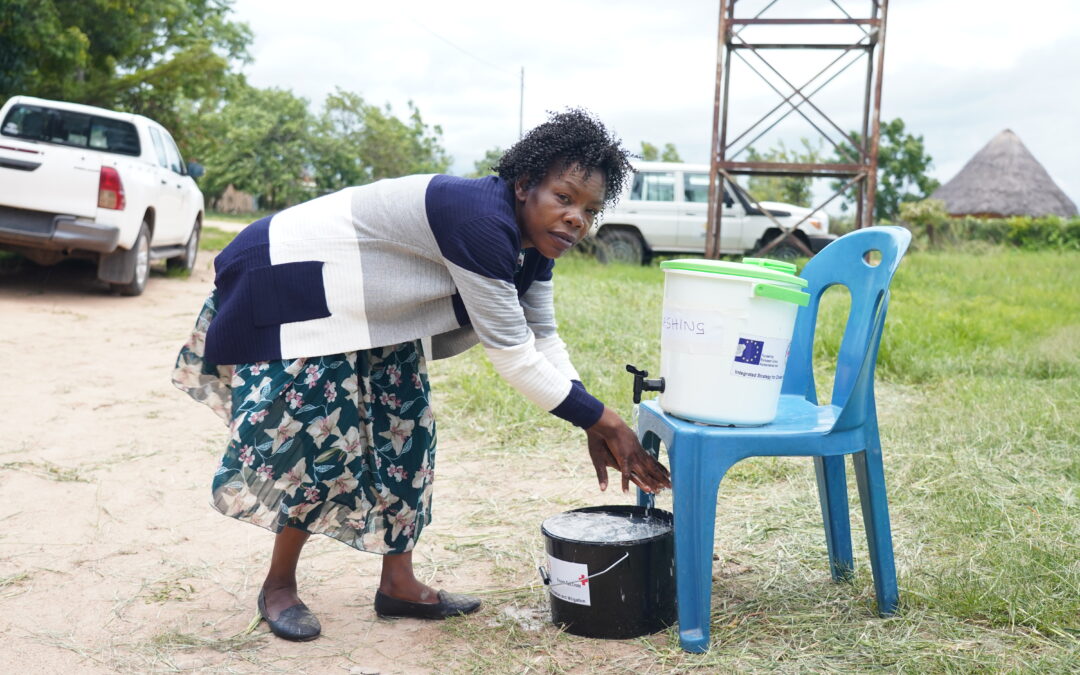
Promoting community-centred preparedness and response to cholera’s global surge
In the context of the global cholera upsurge and in particular the most recent outbreak in Zambia, Eva Niederberger (Anthrologica), Santiago Ripoll (IDS) and Tom Barker (IDS) blog about the importance of centring cholera outbreak preparedness and response strategies on the circumstances and needs of communities and the experiences and insights of local responders.

